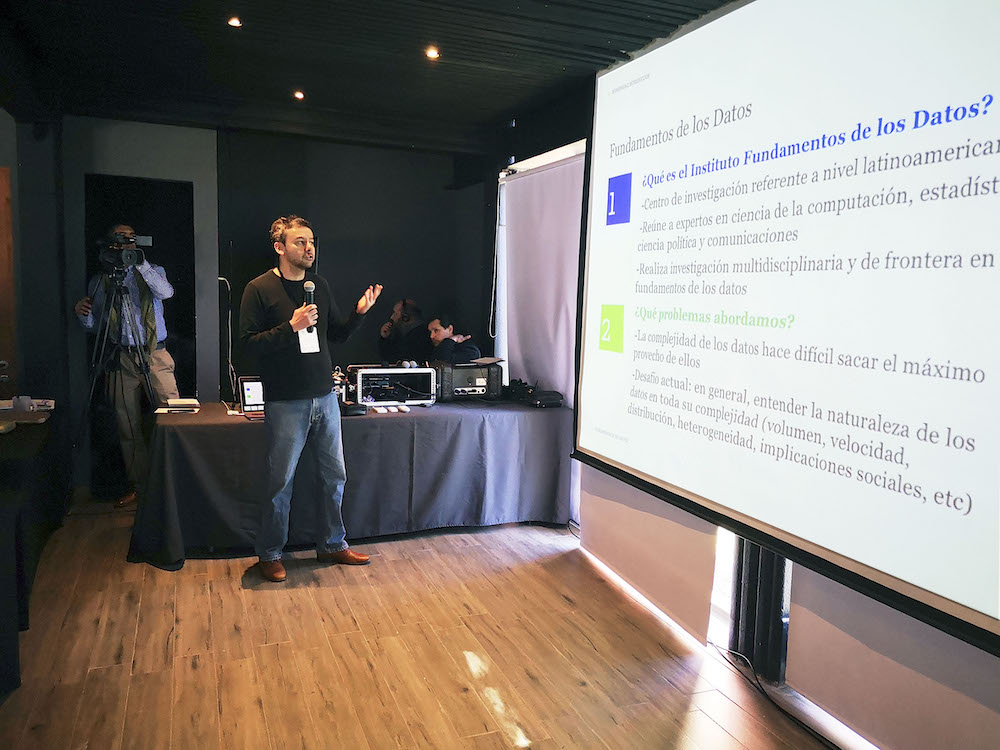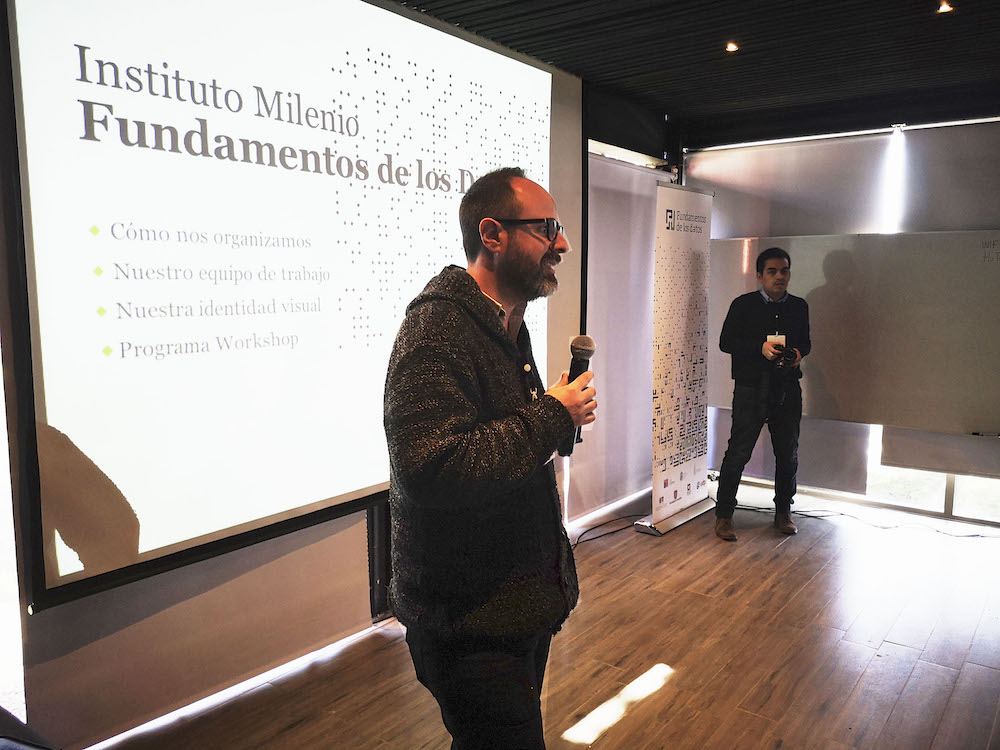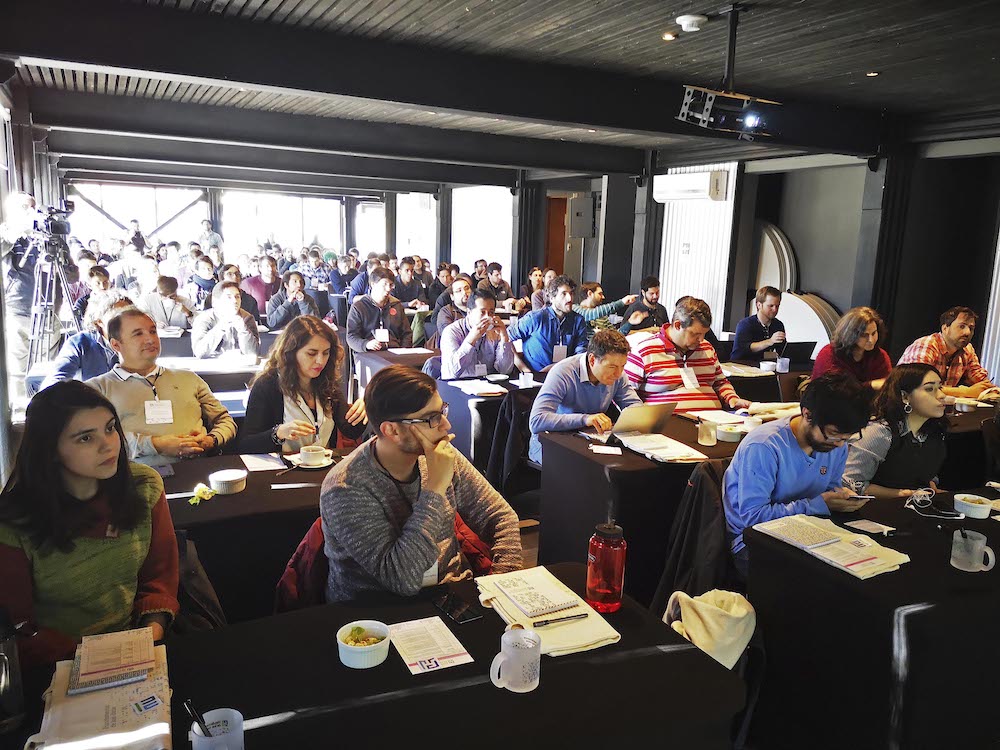
More than 100 researchers meet at I Workshop IMFD
Experts from the areas of computing, statistics, political science and communications met at the I Workshop of the Millennium Institute Foundational Research on Data, held in Machalí in August 2018.
The meeting was attended by almost 70 undergraduate and postgraduate students from the various areas of knowledge that make up the institute, who -together with more than 30 researchers- worked together in the analysis and search for solutions on topics ranging from phenomena in social networks to the analysis of algorithms applied to computing.
An alliance with an interdisciplinary spirit
“The main objective of this first workshop was to make all the members of the institute aware of the emblematic projects through which interdisciplinary research is being carried out with a view to its potential application and development,” said Marcelo Arenas, tenured professor of the Department of Science of Computing at the Catholic University and director of the IMFD.

For Pablo Barceló, one of the most interesting elements in this workshop was the presentation of the units that support the institute in the areas of Administration, Communications and Outreach: «We feel that we have a project that we are approaching with a vision of the future in all dimensions, and we give particular relevance to our relationship with society. Data is the future and citizens cannot be left out of this debate”, he stated.

Innovation and Transfer
Although the focus of the Millennium Institute Foundational Research on Data is to do frontier science in the field of data, one of the great concerns of researchers is to strengthen ties with the public sector and also private organizations that express urgent data needs.
Jorge Pérez, scientific director of the Directorate of Innovation and Transfer and professor of Computer Science at the University of Chile, commented that “we are training human capital in data science at the highest level and Chile has urgent needs to address in this field; Extending a bridge between both points seems the most logical thing if we want our country to incorporate these techniques into its management”.
Problems in a minute
One of the instances that generated the most debate was “The stone in the shoe”, a two-hour segment in which any of the workshop participants could present -in one minute- a problem that they were encountering in their research.
«The first objective was to generate interdisciplinary sub-projects led by young researchers and in which students from all disciplines participated and this was more than achieved, since more than 20 problems were presented, which we will work on and refine during the year. year”, says Juan Reutter, Director of Academic Training and Networks and academic of the Department of Computer Science of the Catholic University.

